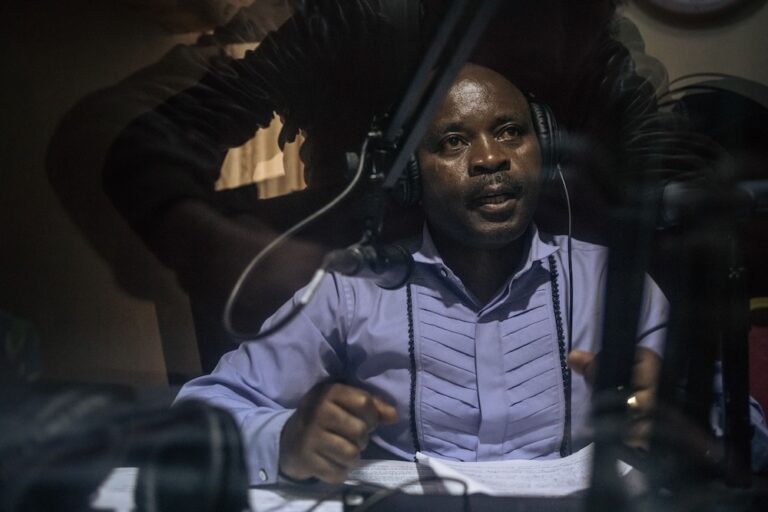(JED/IFEX) – A Bukavu military tribunal handed down its verdict on 28 August 2007 in the case of murdered Radio Okapi journalist Serge Maheshe Kasole, sentencing the two main suspects and witnesses – who were also friends of the journalist – to death. Freddy Bisimwa and Masasile Rwezangabo were convicted of carrying out the killing, […]
(JED/IFEX) – A Bukavu military tribunal handed down its verdict on 28 August 2007 in the case of murdered Radio Okapi journalist Serge Maheshe Kasole, sentencing the two main suspects and witnesses – who were also friends of the journalist – to death.
Freddy Bisimwa and Masasile Rwezangabo were convicted of carrying out the killing, while Serge Muhima and Alain Muhimbi were found guilty of “associating with criminals”. According to information obtained by JED from witnesses present at the verdict, the tribunal’s decision was based solely on the statements of the two main suspects, who confessed to killing the journalist in exchange for a promise of US$15,000 each and a ticket to South Africa by Muhimbi and Muhima.
Two other men charged in the case, Sergeant Arthur Bokungu Lokombe and Bisimwa Kenzo Chanel, were sentenced to six months’ imprisonment without parole for “destruction of weapons of war” and “attempted escape”, respectively, while another two were acquitted.
A member of one of the convicted men’s families who spoke to JED expressed his surprise at the verdict, since, by the tribunal’s own admission, a number of details in the official version of events remained unclear and there were inconsistencies in both Bisimwa and Rwezangabo’s statements. In fact, both at the investigation stage and during the hearing, the two chief suspects confessed to the crime then later retracted their statements, exonerating Muhimbi and Muhima – also friends of Maheshe – only to return to their previous version of events later on.
JED is stunned by the tribunal’s verdict and is calling for the Maheshe case to be reopened and heard before an independent tribunal. JED is also concerned that the tribunal was unable to establish a motive for those who commissioned the crime.


